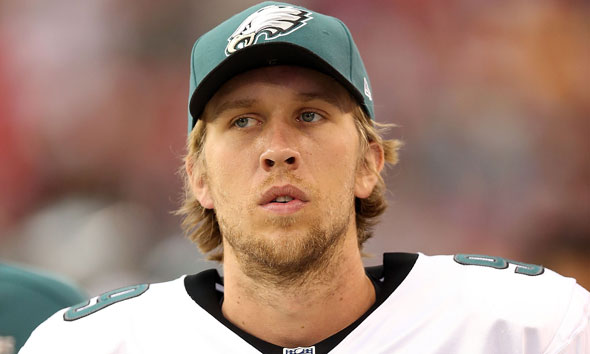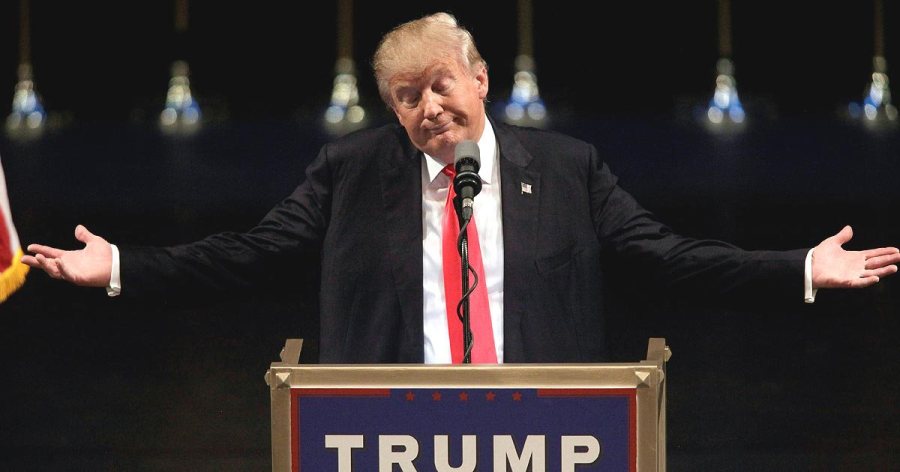Like other rationalists, I’ve written about the dangers inherent in our instincts for tribalism. Unlike other rationalists, I think that instead of being suppressed tribalism should be indulged in a productive manner. That’s why I take a couple of hours each week, alone or with friends, to scream at a TV showing some sports game that involves Carolina, Tottenham or the Philadelphia Eagles.
So there I was on Saturday as the Eagles went into a playoff game against the Falcons as 3.5 point underdogs. Philadelphia had the best team in the league for most of the season, but in week 14 their star player Carson Wentz tore his ACL on a meaningless play and was replaced by Nick Foles, a loveable goofball whose career was so up-and-down-and-down-and-down that he considered retiring from football at age 26.

Foles, who hasn’t practiced with the rest of the Eagles’ first-string offense, played poorly in the last three weeks of the regular season. Every preview of the upcoming playoff game talked about the Eagles having to run the ball, pass conservatively, and win with their defense, given how unlikely it was that Foles could play well.
The game started, and Nick Foles dropped back to attempt his first playoff pass in four years. But instead of dumping the ball for a short pass, Foles launched a 42-yard bomb as if he were a battle-tested superstar.
The pass missed the receiver by ten feet.
And the thing I screamed at the TV was: “Yes! That’s how you f%#&ing do it!!!”
I wrote an old post about the need for sports teams to maximize variance (instead of maximizing expectation) when they’re trailing in a game. A basketball team down by 2 with a few seconds left should take a three-pointer, football teams trailing by two touchdowns should attempt a 2-point conversion each time, and hockey teams should pull their goalies earlier.
The Eagles’ situation was similar: they weren’t trailing, but they were underdogs.
After being Super Bowl favorites for a large part of the year, the Eagles’ odds of winning the title dropped to 14:1 after their star was injured. And with this kind of season, no fan in Philadelphia really cares if they lose in the second or third round of playoffs. It’s Super Bowl or bust, and you’re not winning the Super Bowl with a bad quarterback.
So what do you do if you’re the Eagles’ (or Jaguars’) coach? You just assume that your quarterback is good enough to win the Super Bowl, and plan from there.
The logic is simple: the Eagles will win if Foles is good and they let him throw it. If he’s actually the terrible passer that went 4/11 in the Eagles’ last regular season game, they aren’t lifting the trophy whether they let him throw it or not. So let him throw it!
Nick Foles completed 77% of his passes against the Falcons, including a crazy throw that bounced off an Atlanta defender’s knee into the hands of an Eagles receiver. The Eagles got lucky, and they won.
Next Sunday the Eagles will host a very good defensive team in the Vikings. This week people in shiny suits and fake tans will go on ESPN to talk about how the Eagles need to play it safe and run the ball to win. I hope that Doug Pederson, the Eagles’ coach, keeps ignoring them.

Let’s look at how Donald Trump and Hillary Clinton spent the summer before the election.
In July 2016 Trump was trailing Clinton by 5-6% nationally, which gave him slightly better odds to win the election than the Eagles have of winning the Super Bowl. There were several states that were polling within a single point in favor of either candidate, like Nevada, Colorado and Arizona. However, Trump only spent 15 days combined campaigning in these three states. In contrast, he spent 24 days in Pennsylvania and Virginia, which showed a 6% Clinton lead, and another 12 days in Michigan and Wisconsin which showed a Clinton lead of 10-11%!
What’s the point of campaigning in states where you’re so far behind? You just have to assume that you’re not far behind at all!
To win the election, Trump had to believe that all the polls were exaggerating Clinton’s lead by 6%, or that something crazy would happen to drop Clinton by that much late in the race. If you subtract 6% from Clinton’s numbers in each state, Colorado and Arizona are now securely in Trump’s pocket and there’s no reason to waste too many days there. Pennsylvania, Virginia, and Wisconsin become swing states that could be swayed by good campaigning. And if the polls are not wrong, then it doesn’t matter at all where Trump campaigns because he’s not winning anyway.
| State | Clinton Days | Clinton Adj. Days | Trump Days | Trump Extra Days | Clinton Poll Advantage |
| Florida | 15 | 22.5 | 19 | -3.5 | 4.6 |
| Ohio | 15 | 22.5 | 17 | -5.5 | 3.2 |
| Pennsylvania | 15 | 22.5 | 14 | -8.5 | 6.1 |
| North Carolina | 11 | 16.5 | 15 | -1.5 | 1.4 |
| Nevada | 6 | 9 | 4 | -5 | -0.6 |
| New Hampshire | 4 | 6 | 9 | 3 | 5.3 |
| Michigan | 4 | 6 | 7 | 1 | 11.7 |
| Iowa | 3 | 4.5 | 6 | 1.5 | 5 |
| Colorado | 3 | 4.5 | 7 | 2.5 | 0.7 |
| Virginia | 2 | 3 | 10 | 7 | 5.7 |
| Arizona | 1 | 1.5 | 4 | 2.5 | -0.1 |
| Minnesota | 1 | 1.5 | 1 | -0.5 | 11 |
| Wisconsin | 0 | 0 | 5 | 5 | 9.6 |
Naturally, the best strategy for the favorite is to counter the best strategy for the underdog. Clinton should have consolidated the states where she had a 5-6 point lead (since winning those states would give her the election). Instead, she spent a quarter of her days on the stump in Nevada, Arizona, and North Carolina getting just 6 of the 32 electors from these states.
The table above shows the total number of days spent campaigning in each state by both candidates, as well as the polling margin in the middle of the campaign season. Trump spent 50% more days on the trail than Clinton, so I adjusted Clinton’s days by x1.5 to calculate which states were over and under-emphasized by each candidate.
The data shows a 0.2 correlation between Hillary’s polling margin in a state and the extra time Trump spent there relative to Hillary. This suggests that Trump’s campaign was smarter about maximizing his odds of winning the election, rather than maximizing the number of electoral votes. Wisconsin and Michigan flipped from plus 10 to minus, and the rest is some messed up history.
I guess it takes a stable genius to execute the strategy of a high-variance underdog.

This is a useful frame even if you’re not running for president and/or coaching a sports team.
In dating, the odds are stacked against you: almost all first dates don’t lead to great relationships. This means that you should assume that the person you’re on a date with would be really into you if they knew you. You can be vulnerable, honest, and geek out about the things you’re passionate about. If you’re deeply compatible then this will bring you closer, and if the other person doesn’t max out your matrix then the relationship wasn’t happening anyway.
In job interviews, assume that the employer needs precisely the things you’re best at. Talk about your strengths, rather than trying to paint your weaknesses in a better light. If it turns out that the job needs something that you’re not good at, you probably weren’t getting an offer anyway.
If you need to be both lucky and good to get something, be good in the way that works if you also get lucky.

This is the non-cynical version of:
“A simple rule that every good man knows by heart
It’s smarter to be lucky than it’s lucky to be smart”
http://www.themusicallyrics.com/p/267-pippin-the-musical-lyrics/2170-war-is-a-science.html
LikeLike
Thoughtful and well-reasoned.
LikeLike
In my opinion, I think a clearer way to phrase the principle you’ve illustrated is “If you’re competing for a discrete reward from a disadvantage, invest time/effort/money into strategies that are crazy enough to get you the win, instead of investing in things that just help you lose-less-badly.” Very wordy but I think more accurate + more helpful than advising people to be luckier, since we can’t control that. I’m sure you can make it more concise :) maybe an updated version of this post would be cool? I’m sure there’s more recent examples you can point to of this effect. I’d also love to think about more ways that this applies to my personal life – I’ll chew on it.
LikeLike